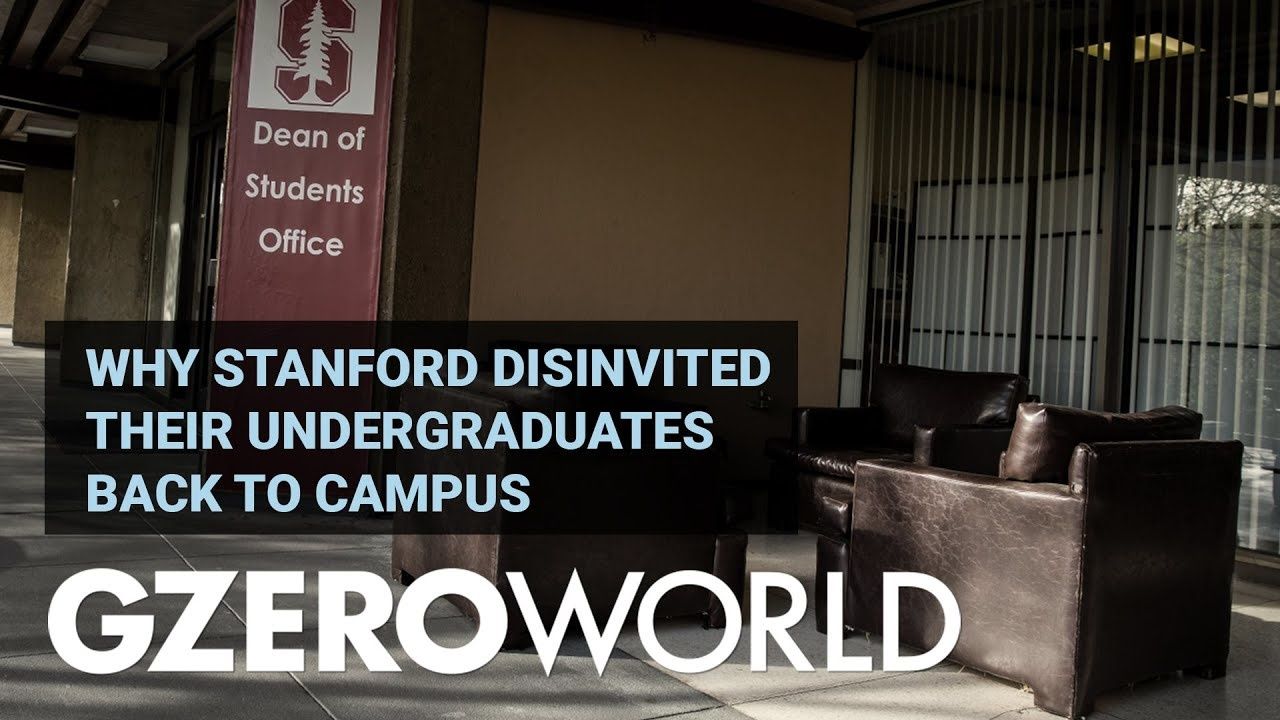
Why Stanford Disinvited Their Undergraduates Back to Campus | GZERO World
"Yeah, that was a very difficult decision. Very disappointing. Our students wanted to come back. Our faculty wanted to come back," Stanford President Marc Tessier-Lavigne told Ian Bremmer. After first announcing in June that Stanford would welcome all students back to campus in the fall, Tessier-Lavigne reversed course in August, determining that California's COVID outbreak made a large-scale student return untenable. But, Tessier-Lavigne points out, not all students will be barred from returning this fall.